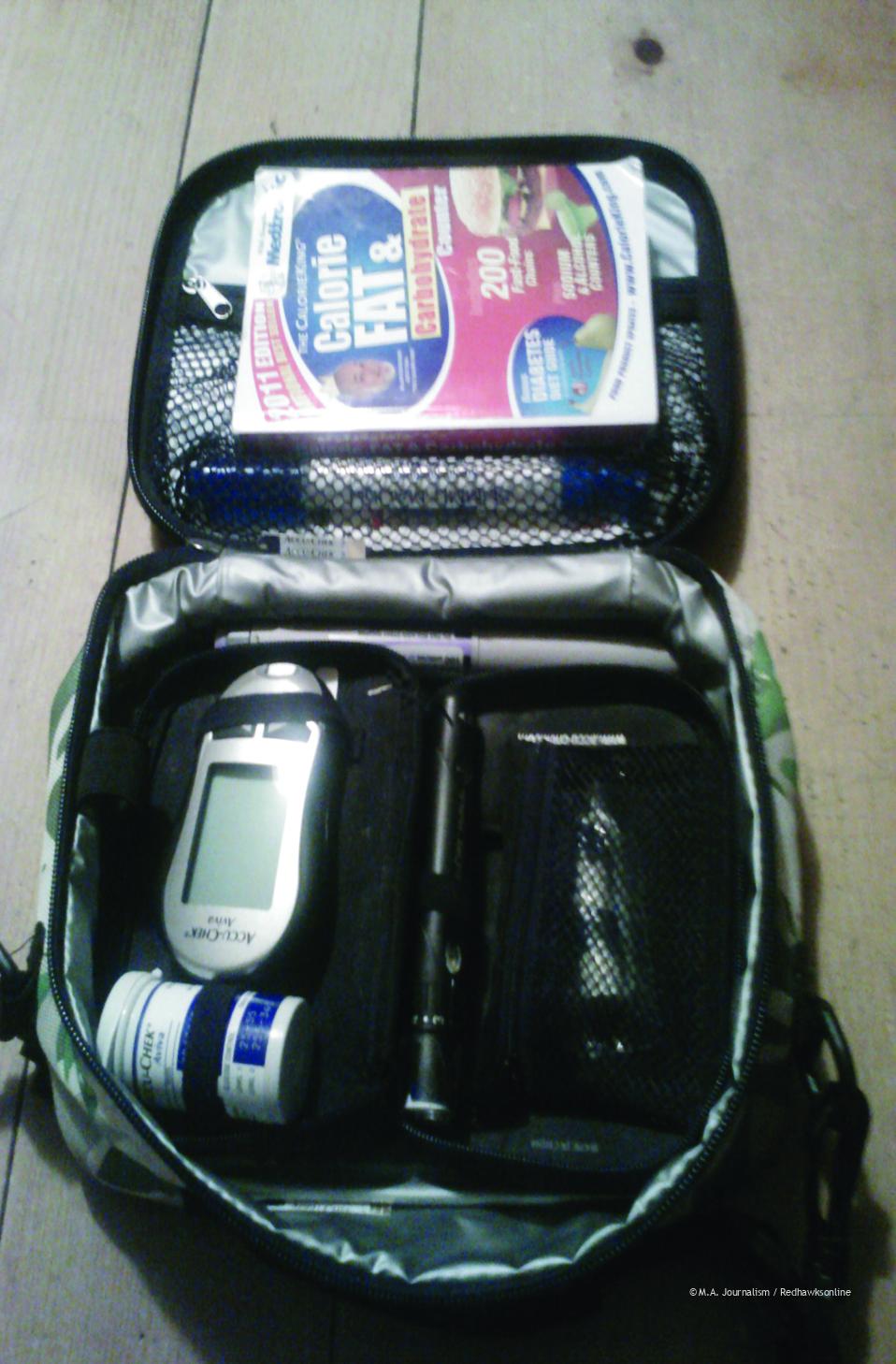Does insulin affect you?
The impact of the diagnosis of diabetes ripples into the lives of friends and family but also helps create a community of understanding an encouragement.
By Pauline Ojambo, Talon Staff Writer
“I thought he was going to the doctor to come back and get better,” sophomore Jessamine Von Arx said.
Her life changed drastically when her 10-year-old brother was diagnosed with diabetes.
According to the American Diabetes Association 8.3 percent of the United States population have been diagnosed. In 2009, Minnehaha graduate Christian Stokes (’09) became the National Teen Advocate for diabetes. Minnehaha graduate Kelsey Miller (’11) was diagnosed on the last day of kindergarten and just last year current sophomore Thomas Weber was diagnosed.
But what is diabetes?
Diabetes deals with insulin, which is made in the pancreas. Insulin converts sugar into energy, suppresses extra sugar production and suppresses the breakdown of fats and proteins for energy (which is the last alternative for the body to get energy).
Diabetes is a disease that cannot be cured but is treated by receiving more insulin, the constant change of blood sugar levels is checked regularly.
Diabetes is divided into two categories: type one and type two. Type one is when your body is unable to produce insulin. It was formally known as juvenile diabetes, because it’s often diagnosed at a young age. Type one is genetically predisposed. Type two diabetes is when the body is insulin resistant. It’s typically developed around or after 30 years of age.
Clinical Nutritionist Craig Hartman clarified; type two diabetes is genetic to some degree but develops more from lifestyle choices. The idea that individuals who develope type two diabetes are obese is a common misconception.
Type two diabetes doesn’t have anything to do with eating fats and sugars. It has to do with carbohydrates.
Hartman recommended eating foods outside of the grocery store that aren’t processed.
“If you don’t pull it out of the ground or kill it, don’t eat it,” he said.
Von Arx remembered how it all began. Her brother was tired and weak. When the family went to the doctor, he was diagnosed with type one diabetes, which was thought to be caused by a virus.
“He was healthy for a nine year old boy,” Von Arx said.
Sophomore Thomas Weber has experienced some of what Luke Von Arx went through.
Weber was diagnosed with type one diabetes in October.
“I was feeling really out of it,” Weber said, “I could not pay attention at all.”
Weber felt thirsty all the time. School became difficult.
“I was really sensitive emotionally,” he said.
When Weber was diagnosed, his blood sugar was three times as high as it was supposed to be. Weber knew what diabetes was, and what had to be done but parts of the diagnosis terrified him.
“I had a very big needle phobia,” Weber said.
He soon learned that the shots were endurable.
The most important thing Weber realized was God’s love for him.
“Through the hardest challenge in my life God will still be there,” Weber said.
Graduate Kelsey Miller was diagnosed with type one at the young age of five. She had the same symptom of thirstiness that Weber had. Her parents decided to take her to the hospital. Though her parents had never been diagnosed, Miller pointed out that several of her aunts and uncles had been.
From kindergarten until her junior year of high school, she received shots after meals. In second grade she was responsible for checking her blood sugar, and in fifth grade she began to give herself the shots (instead of the nurses or her parents doing it for her). During the middle of her junior year she switched to an insulin pump.
“The pump is a little device that controls/stores all my needed insulin and delivers it to me when needed,” Miller wrote.
Her humbleness has changed her perspective on the situation.
“The feeling you get when your blood sugar is low is honestly one of the worst feelings in the world,” Miller wrote. “I know people suffer from diseases much worse than mine, and I try to remind myself of that daily, but it doesn’t exactly make it any easier to live with.”
As Miller entered college, she had to introduce herself to her roommate on a more personal level.
“A part of my responsibilities in college is to inform my roommate that I have diabetes and then explain to her what she needs to do if I ever get low,” she wrote. “This disease hasn’t just affected me, but my entire family as well; we have all had to make sacrifices and change things in order for me to be as healthy as possible.”
Von Arx agreed.
“We’ve grown closer as a family,” she said.
The Von Arx family has integrated the new routine in their everyday life. They have to remember to give Luke vitamins, check his blood sugar before every meal and whenever he eats they need to keep track of the carbohydrates he consumes. The Von Arx family also needs to watch Luke closely and make sure his temperament and mood don’t change too drastically.
“We have to remember and not affect his mood, [and] we have to realize he has to rest [at times],” she said.
For Luke, anger means his blood sugar is high and tiredness means his blood sugar is low.
“It’ll get easier,” Von Arx said, “he will be healthy.”
Through her experience Miller discovered her passion to become a nurse. She learned that taking care of herself could also lead to taking care of others.
Try to imagine yourselves walking alongside a person diagnosed with diabetes. Now, try to imagine yourselves diagnosed. What would you take out of it?

